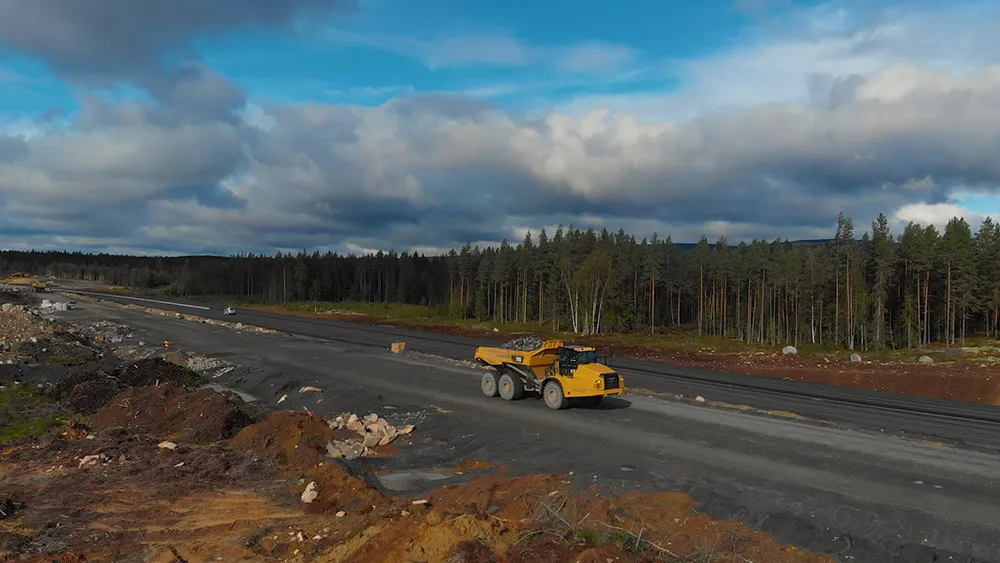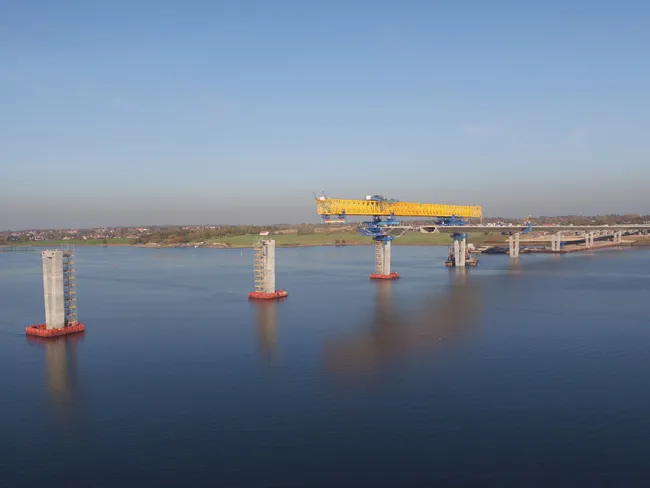The highway of the future will not be a physical asset created and maintained by the construction industry … it will increasingly be seen as part of an emerging global services sector. “Every day we hear about Mobility as a Service (MaaS), but what about Roads as a Service?” says Christophe Nicodème, general director of the
Speaking at the ERF’s first road “Lab” in Brussels, Nicodème said: “The next generation of mobility will involve, among other things, new players from the energy and telecommunication sector. An efficient inter–sectoral cooperation will bring benefits to traditional stakeholders, road managers and users in terms of safety, sustainability and efficiency.”
There is an ecosystem developing around road planning, design and usage. It time to think and act in news ways said Nicodème. His ERF Lab looked at a series of emerging questions on the future of the world’s highways as a potential service provider and discussed how the purpose and functionality of roads will go beyond the transportation of goods and people. Roads will move from the realm of asset management to somewhere new, somewhere more associated with value added services, and a safer and more sustainable shared public resource. Let’s help this nascent ecosystem flourish, he said.
ERF president Rik Nuyttens told the Lab that the highway designers and operators of the future are going to have to juggle ever-changing patterns of driver behaviour, the needs of constantly evolving vehicles and the desire for more adaptable infrastructure. And it will be made even more difficult by: “The life cycle variations involved. The average software package will last for about three years, the average vehicle for about five years and the road itself could easily have a life-span of 30 to 40 years.”
And, during this period, new user trends will emerge said Xavier Tackoen of Espaces Mobilité. He told the conference that several new trends are clear to see now. First, long-distance bus operators like FlixBus are growing fast across Europe. “They act like a train operator, but they use the road for free. They have a railway-style network across Europe and 40% usage rates, but they work with a very digital mindset.” FlixBus describes itself as an integrated passenger travel network: “Choose from over 300,000 daily connections to over 1,700 destinations,” says its latest online advertising. “Low-cost coach travel to France, Germany, Belgium, and beyond ... baggage Included. Free Wi-Fi. Guaranteed seat. Plug sockets on board. Book securely online. Extra legroom. Toilet on board.” You can travel from London to Paris for less than €15.
“Flixbus is a German brand which offers intercity bus service in Europe and the United States,” says Wikipedia. “Launched in 2013 following the deregulation of the German bus market, Flixbus aimed to establish an alternative to carpooling and Deutsche Bahn, the German state-owned railway.” And this leads directly into the second key trend for Tackoen: carpooling. Companies like BlaBlaCar are online platforms for matching car owners with people who want a lift in the same direction and are willing to pay for it.
“Enter your departure and arrival points and your travel date, then choose a car owner going your way,” says BlaBlaCar. Users look at possible ride-share options online and then they are told: “Book your seat online. You’ll get the car owner's phone number to arrange the final details. If you have a question, you can ask the car owner before booking.” And users are encouraged to: “Check out the car owners' trusted profiles, including ratings left for them by other members.”
“BlaBlaCar is not a small company,” Tackoen told the ERF Lab delegates. “It has developed a worldwide ecosystem and (its match-making car share platform) is now operational in 22 countries, including Brazil. In 2018 it will transport more than 15 million people on our roads.”
Both of these technologies are sucking more and more journeys onto the roads, away from trains and planes. And the third key trend is “office buses” where employers provide a commuter coach in which employees can work. They get to their desk in the bus and log in … the working day starts and ends on the bus. Office workers can leave at 4pm instead of 5pm and spend their last working hour of the day on the road, commuting home. “It is a workplace on wheels,” said Tackoen. “As soon as you are on the bus, you are at work.” There are now 9 “office bus” lines in and out of Brussels, and the portable desk is truly here to stay. It is a trend that could dramatically change city centre congestion patterns said Tackoen.
More cycle lanes, self-driving cars, satnav specialists like Waze and digitally connected travellers of all kinds mean that the road users of the future will see vehicles as nothing more than items in a connected network. “Cars will just be one of the elements in this network,” said Tackoen. “The challenge is how to design our roads as a service provider,” enabling all this activity to take place safely and efficiently. “The road will become a commodity. You will not buy a vehicle any more. You will buy a trip. You will pay a monthly service charge to access the cars, the buses and the taxis you will need to travel over the road network.” Expect all of this to be in place by 2050 in Europe said Tackoen, as the 21st century becomes “Mobility 4.0” He predicts a sort of Netflix platform to emerge in which the public will be able to pay for to a “light” subscription option, a “medium” option or a “premium” option depending on how much of these new road services they want to access. A premium sub might get you unl
imited bus travel, 8 taxi rides and five full days of car use per month for instance. There will also probably be a pay-as-you-go option too.
Our roads are going to become data highways said Tackoen, mobility will be delivered by big data and all transport modes will be integrated. It is all going to be about “usage rather than ownership,” he said.
Other papers at the ERF Lab included a look at connected infrastructure for collaborative travel management from Gino Franco of Swarco; a review of cooperative and automated mobility in Flanders from Kristof Rombaut of the Flanders Agency for Roads and Traffic; an overview of GIS and crowd-sourced data for safer roads from Ian Koeppel of ESRI; a summary of the Michelin Movin’ On Lab from Alexis Offergeld of Michelin; and a summary of the trends in infrastructure design because of vehicle automation from Maria Cristina Marolda of AET.
Road user subscriptions will fund the road ecosystems of the future says ERF Lab
The highway of the future will not be a physical asset created and maintained by the construction industry … it will increasingly be seen as part of an emerging global services sector. “Every day we hear about Mobility as a Service (MaaS), but what about Roads as a Service?” says Christophe Nicodème, general director of the European Union Road Federation (ERF). “The role of the road is changing. We need to think much more carefully about planning (highway) infrastructure in terms of people’s needs. We must
December 14, 2018
Read time: 6 mins









